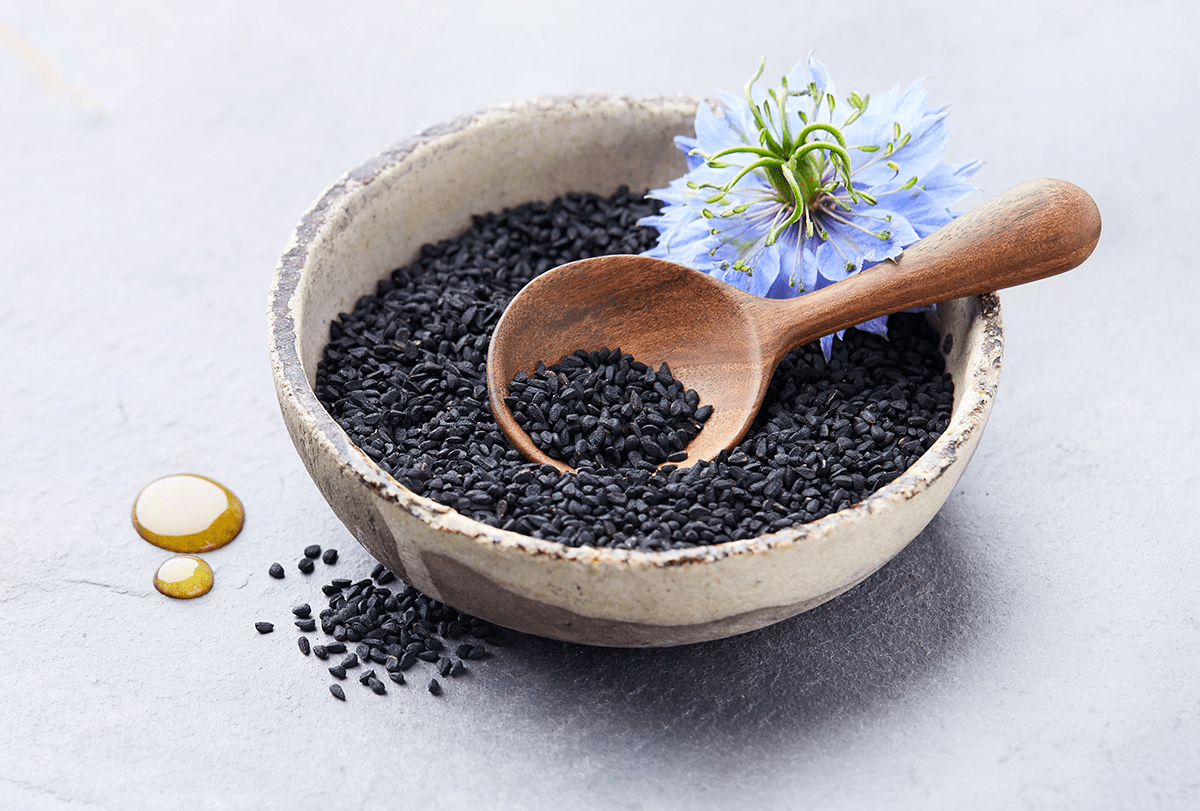

The nutritional profile of black seeds is extremely complex, with research identifying over
100 different compounds thus far. These seeds are a rich source of fatty acids, protein,
ash, antioxidants, and carbohydrates.
Black seeds and the oil derived from them are considered functional foods. This implies
they are safe and are often used in home remedies as a means of promoting natural
health and disease prevention. It is considered powerful enough to treat certain chronic
conditions in certain cultures where it is often described as a miracle herb. [ref]
The fatty acid analysis [ref] of the extracted oil shows the following components:
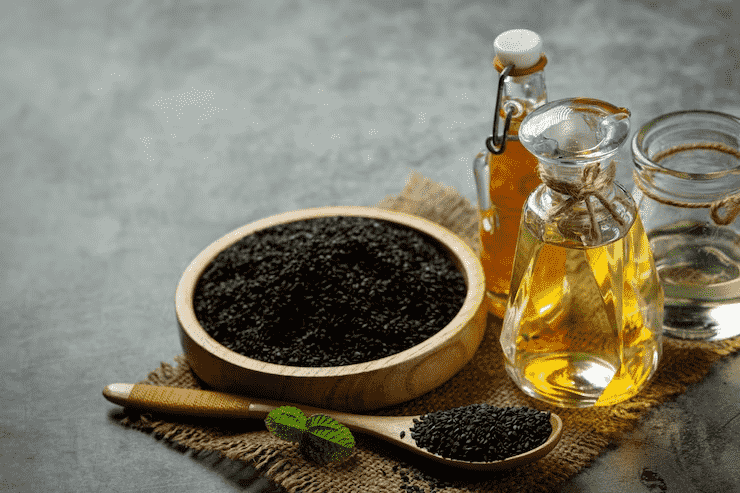
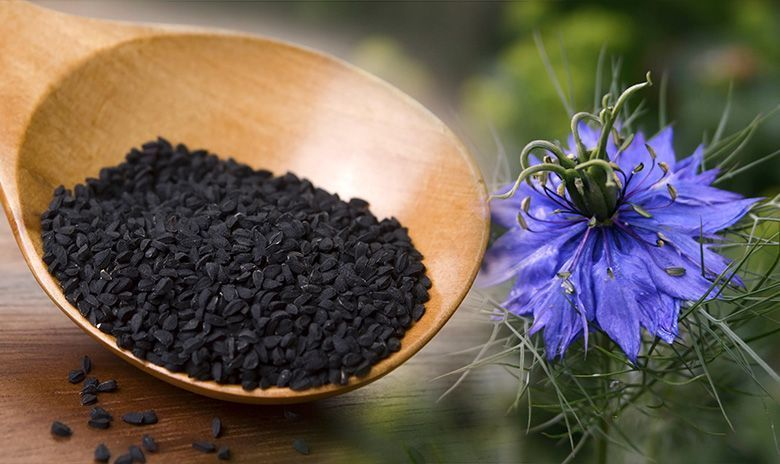
Black seeds are a good source of calcium, potassium, iron, and sodium, as well as other vital minerals and amino acids [ref]. As a balanced diet is considered the cornerstone of a healthy lifestyle, black seeds or a black seed supplement as part of your diet may ensure your body is not deprived of certain key nutrients needed as the raw materials or building blocks of a healthier body. Black cumin seeds (Nigella sativa) has, for thousands of years, been used for its aroma and flavor as a spice for cooking or in herbal medicine.

One of the most significant potential health benefits with regards to black seed oil is its positive effect on immune system support [ref]. Because of its potential immune system support properties, it could thus help the body with its healing process, especially in those with an under-active immune system response. This also implies benefits in the addressing of autoimmune conditions and allergies.
A healthy immune system helps your body fight numerous health conditions.

Diabetes mellitus is one of the leading causes of health issues and mortality worldwide. It may impair various organ systems, thus finding adequate treatments for the condition are important. According to estimations from the World Health Organization, “…diabetes was the seventh leading cause of death in 2016.” [ref] The main causes with regards to the condition include poor lifestyle and food choices.
Various studies on the effect of black seed oil with regards to blood sugar management show positive results, with one stating that “…a dose of 2 gm/ day of Nigella sativa might be a beneficial adjuvant to oral hypoglycemic agents in type 2 diabetic patients.” [ref]

Your lymphatic system can be regarded as a cellular garbage disposal mechanism. It helps clear damaged cells and removes toxins, bacteria, viruses, and metabolic waste. It is also responsible for delivering nutrients to cells, maintaining your body’s fluid balance, and is a critical component of your immune system. An overwhelmed lymphatic system could result in such health issues as edema, swelling, inflammation, fatigue, aches, pains in joints and muscles, infections, arthritis, and even cancer.
The anti-inflammatory, antioxidant, and antimicrobial properties of black seed oil may supercharge your lymph system, thereby lessening the lymph load and allowing it to perform better. An efficient lymph system helps support every organ in your body.
The numerous pharmacological actions of black seed oil [ref] are well documented. It could be
used for the following:
The exact chemical compilation of black seed oil is mostly an approximation due to various factors that bear an influence. Amongst these are where the seeds are harvested. Thus far, 32 compounds have been identified. The seed oil contains high percentages of fatty acids that show antioxidant activity, making it useful in various pharmaceutical products. [ref]
Two of the fatty acids found in Nigella sativa seeds are omega-3 and omega-6 essential fatty acids. These are important to your diet because your body is not naturally able to manufacture its own.
Omega-3, a polyunsaturated fat, may:
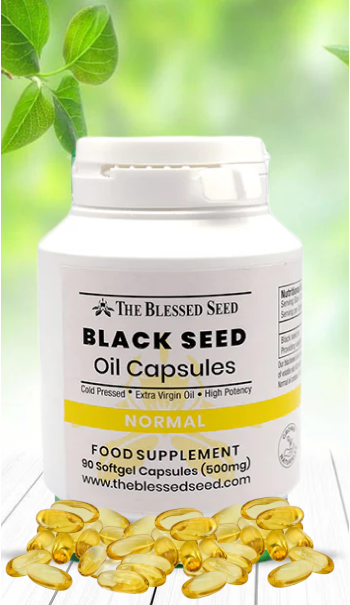
Omega-6 may improve your brain function, play a role in growth and development, stimulate skin and hair growth, maintain your bone health,
help regulate your metabolic processes, and maintain reproductive health. [ref]
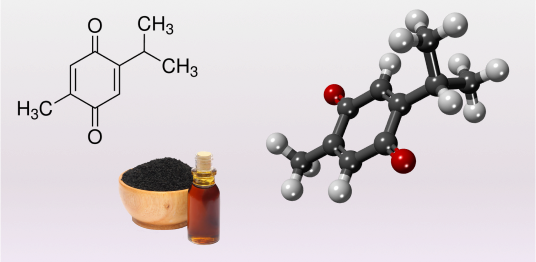
Your body needs omega-3 and omega-6 fatty acids in order to produce the hormone prostaglandin E1. This hormone is involved in inflammation, immune function, and various other biological processes. It is also necessary for regulating and balancing your immune system. It also plays a role in peripheral blood flow and bronchodilation. [ref]
Saponin Malathion has anti-parasitic properties [ref] and may be of use in treating parasites in children. It also helps with nutrient absorption, stimulates appetite, aids in digestion, promotes intestinal cleansing, and facilitates bowel movement.
The bronchodilatory effects of nigellon found in black seeds may make it useful to those suffering from respiratory disorders [ref] like asthma. It also has anti-histamine qualities.
Beta-sitosterol may help lower cholesterol levels and may also have anti-tumor and anti-carcinogenic properties. [ref]
Your body needs vitamin B2 to use oxygen and for the metabolism of amino acids, fatty acids, and carbohydrates.
Your body needs vitamin B2 to use oxygen and for the metabolism of amino acids, fatty acids, and carbohydrates.
Niacin plays a role in the breakdown of fats and protein. It helps maintain muscle tone in your digestive tract and promotes nervous system, skin, hair, eye, mouth, and liver health. [ref]
Selenium is a trace mineral with antioxidant, antiviral, and anti-bacterial properties. [ref] It may reduce your cancer risk, help prevent blood clots, and inhibit chromosomal damage. It may also counteract toxins and heavy metals.
Your liver converts B-carotene into vitamin A which has anti-cancer properties. [ref]
Arginine, or L-arginine, a semi-requisite amino acid, is required for many metabolic processes. It boosts the immune system, improves blood flow, and reduces erectile dysfunction. Arginine also stimulates the release of growth hormones and insulin. [ref]
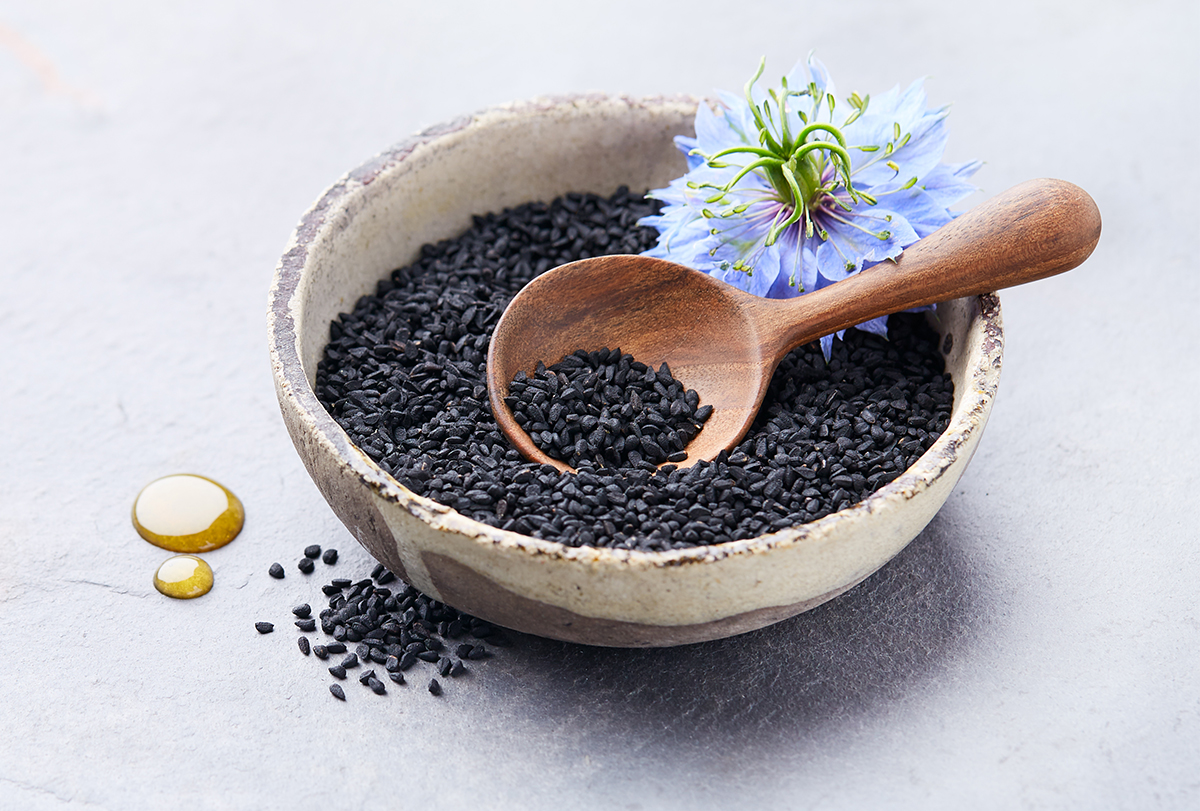
Black seed oil, on the other hand, has numerous applications without any known side effects. Although the verdict is not yet out on why, specifically, it works on so many levels, there are a number of clues. These have to do with the different compounds in the oil that address inflammation, the cause of numerous health conditions, and the fact that it offers immune system support.
Conventional medicine focuses on treating symptoms. In other words, it does not treat the underlying issues. For example, you will get a prescription for each individual ailment. Most of these medications, however, may have side effects.
Black seed oil can be added to any drink, making it a healthy tonic. It could also be used as-is (please refer to the dosage guide) or mixed with honey or yogurt. The oil can also be used topically and applied to the skin to deal with wounds, infections, and inflammatory conditions. For relief from respiratory infections, it can be applied as a rub to the chest area. For steam inhalation, add a small amount of black seed oil to a bowl of warm water and breathe in the vapor. Black seed oil is also available in capsule form

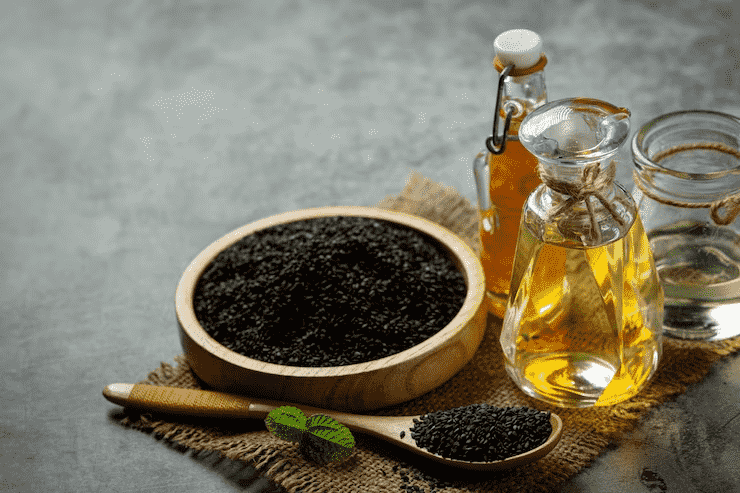
There are no known side effects when black seed oil is used in moderation. It is not, however, recommended for use when pregnant.